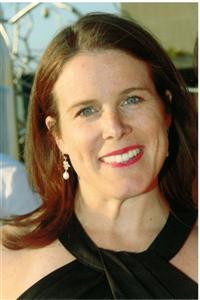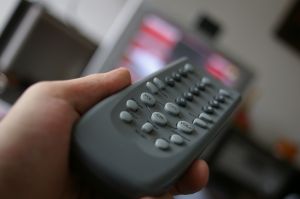To Tell the Truth
By Kelly Hines
In linguistics, code-switching is the practice of shifting your language to adapt to your surroundings. So, a English/Spanish bilingual person may switch from English to Spanish around family or friends or even in businesses where Spanish is spoken. Colloquially, code-switching has evolved to mean something much broader – shifting your behavior and even speech patterns depending on the company you’re in. While many of us don’t code-switch our entire language, we ALL code-switch our behavior.
My husband calls it my ‘phone voice’. More specifically, he calls it my ‘fake phone voice’. “You’re just not that nice,” he says by way of explanation. Despite the insult, I have to agree. I absolutely hate talking on the phone, so when I have to, my voice becomes more measured, my laugh more frequent, my accent non-existent. I subconsciously change my entire way of speaking to adapt to the fact that I’m doing something I don’t want to do.
It’s a total contrast to how I behave when I’m out shopping. Cute little froufrou shop? I stand up taller, speak more slowly, turn into a proper Southern lady. Country store? I let my accent shine, and my voice drips with honey. I have a special affinity for grumpy old men, and make a point of doing my best to charm them.
Code-switching on social media is more difficult. With close friends and family, I tend to use a saltier language. I’m loose with the curse words and euphemisms, and I’m as close to being myself as I can get. Talking to my elders, people in business, or folks who don’t use that kind of language, I adapt. It’s a lot like it was when I was a teenager – the way I spoke around my friends was never the way I spoke to my parents. But social media throws all these people into a big pot together, and not everyone enjoys a good poop joke. Communicating requires a more delicate code-switching, unless you are willing to alienate or offend a segment of your followers.
Sometimes people (like my mother) code-switch in a more lingual way. Despite having no Hispanic background and only a rudimentary knowledge of Spanish, she adopts an accent at the local Mexican restaurant. She used to, anyway, until my merciless teasing stopped her. Now she prefers a clipped, flat, accentless voice to order her enchiladas (formerly referred to as eeen-hee-LADAS). My friend from Michigan sounds like she’s fresh off the set of Hee-Haw when she talks to the deeply southern basketball coach at school. Even my own daughter started singing in an English accent after a semester with an overly enunciated choir teacher.
All of this makes me sound disingenuous, and begs the question – when does code-switching change to dishonesty? I recently heard an interview on NPR with Dan Ariely, the author of “The (Honest) Truth About Dishonesty: How We Lie to Everyone – Especially Ourselves”. In the interview, Ariely cites a study in which two people are given ten minutes to introduce themselves. As Ariely recounts,
“And then they get out of that room and they said, did you lie in the last ten minutes, and people said, no, of course not. And then they play to them the tapes of what they’ve actually said and on average, people lied two or three times in those ten minutes. So we have a very different view of ourselves than the reality.”
I’m a writer who favors fiction and, if I’m honest, I often fictionalize my non-fiction. If the story is good with a verbal argument, then it’s going to be GREAT with a fist fight. They’re mostly white lies, exaggerations, enhancements – but a lie is a lie, even when it’s done for the benefit of others. Code-switching might be more comfortable, even necessary in certain circumstances – but is it lying?
So tell me – when do you code switch? When is it okay to tell a white lie? Just how honest are you, in your words and how you represent yourself?
For a complete transcript, or to listen to the interview with Dan Ariely, visit The Diane Rehm Show on NPR HERE.

![[Clothes Hanging Storage Organizer] - Our hanging closet organizer comes with 2 sets of weekly labels in different colors, so you can choose according to your preference. There are 6 shelves of open storage space for easy access to clothes. Specially...](https://m.media-amazon.com/images/I/41Bjs3vGEcL._SL160_.jpg)


































I have never really taken the time to think about this, but you are SO RIGHT! My mom used to laugh at me because even though I was born in PA and had no trace of southern drawl as a child or teen, I came home from college with a southern accent like you have never seen because my BFF had one. Sometimes I think it just rubs off as you are around people. I can definitely throw out some “you guys” around my northern relatives and “ya’ll” around my southern friends! And my phone voice … yikes! Even I wouldn’t want to talk to me. 🙂